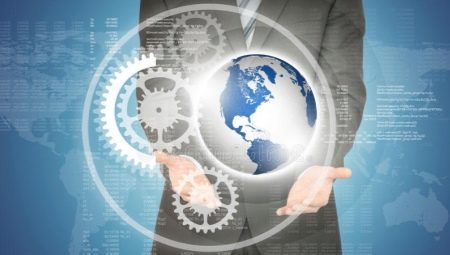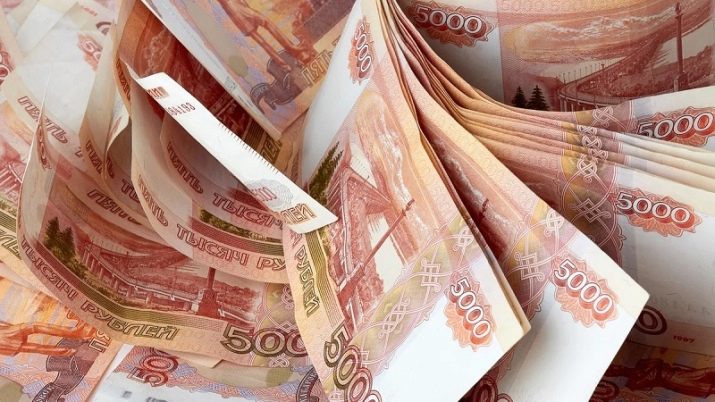All about the profession of political scientist

Sooner or later, every high school student is faced with the question of a career future. At the same time, when choosing a profession, young people often consider options from either the humanitarian or the technical field. One of the most popular professions, which can be attributed to the first category, is the profession of a political scientist. Today in our material we will consider the features and distinctive characteristics of the professional activities of such specialists.
Who is this and what does he do?
Generally speaking, a political scientist is a person who studies politics as an integral part of the functioning of society (hence the name of the profession). Such work is suitable for young people who are interested in such branches of science as history and social studies.
It should be noted that the specialty of a political scientist itself arose quite a long time ago, back in the days of Ancient Greece and Ancient Rome. The first scientists to talk about politics and the state were Plato and Aristotle. Over time, political science as a science has developed and improved. The final object and objectives of the industry were formed only in 1948. On the territory of the Russian Federation, political science has been actively and widely studied since 1755.
The main feature of the work of a political scientist can be called its research bias. Within the framework of science, the political system, power relations, state structure, political culture, political behavior and other aspects of society are studied.Professional political scientists can apply themselves both as practitioners and as theorists - accordingly, the profession itself is very multifaceted.
At the same time, it should be remembered that in order to be a real professional, you need to have a wide range of theoretical knowledge and practical skills.

Advantages and disadvantages
The professional activity of a political scientist, like any other work, has a set of its own unique features and individual characteristics. If you are thinking about connecting your life with this specialty, then you should carefully and carefully study all the pros and cons. Only in this case will you be able to make an objective and balanced decision, which you will not have to regret in the future.
First, let's look at the benefits of the profession. These include the following factors.
- Low level of competition in the personnel market. This is due to the fact that today in Russia there are quite a few professional political scientists who have the appropriate higher education - therefore, you can easily find a job.
- Decent earnings. In the case of high qualifications and relevant work experience, you can apply for prestigious and status positions, which are accompanied by high material remuneration for work.
If we talk about the shortcomings of the profession, then first of all it is worth noting the main one, namely, it is not in demand. In this regard, an overabundance of political scientists in the labor market will lead to the fact that you will not be able to find a job. Thus, it can be concluded that the merits of the profession outweigh the disadvantages. However, for many young people, the low level of demand is such a characteristic that cannot be reconciled, and they refuse to study in their specialty. Either way, the final choice is yours.

Specializations
As mentioned above, a political scientist is a multifaceted profession, which makes it quite interesting. And accordingly, if you study this specialty, you will be able to find yourself in a variety of fields of activity that are somehow related to political science. Let's consider the main ones.
- Consultant. Consultant Is the person who makes recommendations and advice for politicians. Also, in the course of his professional activity, he solves a number of other tasks (for example, helps to form the main direction of his activity).
- Expert. An expert political scientist can be a universal specialist or understand one area (for example, international or military). Such a specialist can cooperate with state authorities or act as an opposition. In addition, it is very common to see experts in the field of political science on TV.
- Reviewer. Political observers deal with the interpretation of current political and social events.
- Theorist. A theorist is a scientific expert. Often, such specialists develop within the framework of various educational universities and research institutes, they can also work as teachers.
- Philosopher. Philosophers view political science from a scientific point of view. They are trying to explain what is happening in terms of philosophical teachings.
- Political strategist. In his work, a political strategist uses special technologies to achieve a particular goal. The political strategist actively interacts with the media in order to influence the public masses.
- Image maker. The image maker is an integral member of every politician's team. He helps to create an attractive image of a servant of power, interacts with PR-departments. These specialists are especially in demand during the period of various pre-election campaigns.
- Speechwriter. A specialist in this profile is engaged in writing speeches for officials, politicians and various officials.
Thus, the fields of activity of political scientists are quite diverse. Accordingly, you can choose exactly the area that arouses your greatest professional interest.


Required skills and abilities
In order for a political scientist to be able to perform his work efficiently and effectively, he must meet a certain set of requirements, have optimal personal qualities, have analytical skills, as well as professional training (theoretical and practical).
The necessary professional knowledge and skills include:
- understanding the reasons for the emergence of certain political phenomena;
- the skill of conducting research (for example, research in the field of studying the dependence of politics on the social and cultural structure of society);
- the ability to make forecasts regarding the political future of the state;
- the skill of analyzing political phenomena to find their common and distinct characteristics;
- theoretical knowledge of political science as a scientific subject;
- Knowledge of foreign languages;
- understanding of the legal system of society, the ability to navigate in the legislative sphere;
- deep knowledge in the field of history, sociology, psychology.
In addition, it should be borne in mind that, depending on the specifics of the activities of the organization in which the political scientist works, the necessary skills and professional requirements can be changed and supplemented. Usually, this is written in detail in the job description.

You should also take into account the fact that the personal qualities of a political scientist play an important role. This is due to the fact that this specialist does not work independently, but is a member of the team.
Among the most important personal characteristics of a political scientist are:
- developed communication skills;
- Analytical mind;
- attention to detail;
- strategic thinking;
- creativity and creativity;
- ethical and moral component of character;
- punctuality;
- initiative;
- a responsibility;
- stress resistance and emotional stability;
- striving for self-development and self-improvement.
The most successful political scientist will be the one who successfully combines professional and personal characteristics. Such a person will always remain a relevant and in-demand specialist in the labor market. It should be borne in mind that the above qualities and character traits are not a closed list. In order to move up the career ladder, as well as actively stand out against the background of other applicants for the position you are interested in, you need to constantly improve yourself.

How to become?
In order to officially find a job as a political scientist, you need to get an appropriate higher education. It is recommended to study at a university (academy, institute, university) located in a large city or capital. The fact is that such educational institutions enjoy prestige among the professional community, so it will be easier for their graduates to find work. In addition, during the period of study, you will be able to get useful contacts. Already during the period of study in the 11th grade, it is advisable to engage in the selection of a specific university (it is better to choose several options). It is imperative that you visit the selected educational institution to find out what exams you need to take for admission, what subjects are taught at the faculty and other important nuances.
When you enroll, the most close attention should be paid to acquiring knowledge, as well as acquiring practical skills that will be useful in the future for performing professional tasks. Due to the fact that the profession of a political scientist belongs to the category of humanitarian, the student will have to read and teach a lot, for which every applicant needs to be ready.In addition, during seminars and practical classes, one should show initiative and activity, not be afraid to express his personal opinion. The duration of the training process may vary. It depends on what level of education you have chosen and what program you are studying. So, on average, the learning process can last from 4 to 6 years. In the event that you want to do science, then this period may increase.
At the same time, after completing basic education, you should not stop the educational process. Be sure to attend various events in order to improve your skills: courses, trainings, lectures, seminars, conferences.

Where to work?
After graduating from university, young specialists work in a variety of organizations - for example, in the media and press centers, government agencies, public centers. Accordingly, depending on the specific place of work, the specifics of the activity may differ.
As for the salary, it can vary considerably - from 20,000 rubles to 100,000 rubles (and even more). The specific figure depends on a wide variety of factors.
- Place of work and residence. It is no secret that salaries in the capital are significantly higher than the material remuneration of those employees who work in the provinces.
- Work experience. Professionals with no work experience can only apply for low-paid starting positions.
- The level of educational background. This indicator is directly proportional to the level of wages.
- Work specifics. More often than not, those political scientists who work in the private sector of the economy receive more specialists who are involved in the public service.
If desired, a political scientist can develop and climb the career ladder, as well as open his own business (for example, a consulting agency).









